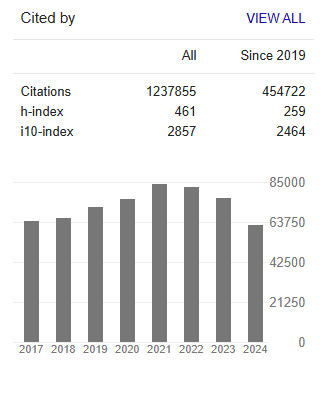Immunoinformatics approach for the determination of antigenic epitope candidates against Burkholderia cenocepacia
Abstract
Cystic fibrosis (CF) is a genetic disorder that affects mainly the lungs but also the liver, intestine, and kidneys. It causes an increase in dehydrated mucus which results in the proliferation of numerous pathobionts. Lung inflammation in CF patients is commonly observed due to the opportunistic infection of the Burkholderia cepacia complex (Bcc) that includes one of the deadly pathogens named B. cenocepacia. Although a low incidence rate is present, B. cenocepacia infection is still a major problem for the CF community. In the study, it was aimed to uncover T and B cell epitopes of novel antigenic proteins of B. cenocepacia that can be potential targets for vaccine development studies. The whole proteome of B. cenocepacia ATCC BAA-245 was first analyzed to eliminate the non-redundant proteins which were then subjected to Vaxign analysis for the determination of vaccine candidates. After subcellular localization analysis, the shortlisted proteins were directed to the antigenicity, virulence, and allergenicity analyses, resulting in nine antigenic, virulent, and non-allergenic candidates. The epitope prediction was then carried out for these candidates and seven proteins containing four TonB-dependent receptors, ornibactin receptor, phospholipase C, and putative outer membrane usher protein were found to contain common T and B cell epitopes. Besides, the epitopes of the three candidates had the best exposed topology that can be used to construct multi-epitope vaccines against Bcc




